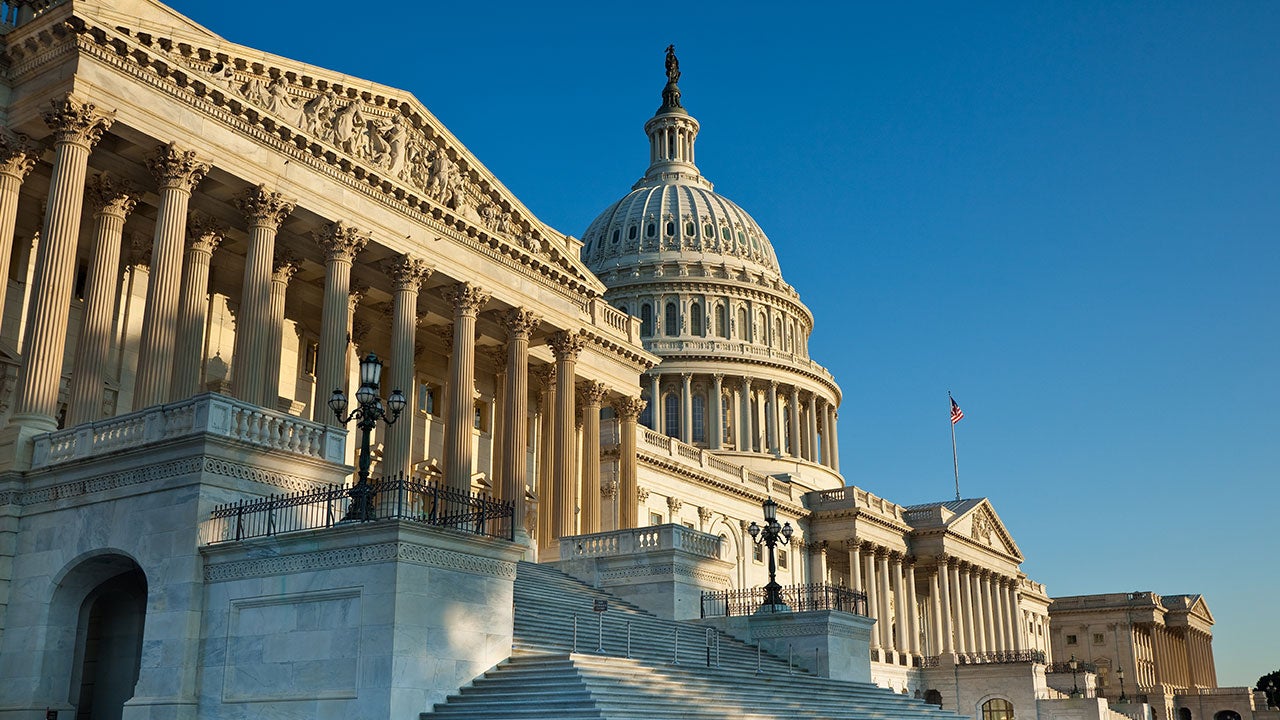Key takeaways
- The Trump administration has effectively halted CFPB operations and overturned key consumer protection rules, including overdraft fee caps and digital payment oversight.
- Congress repealed the CFPB’s overdraft rule in May 2025, which would have limited fees to $5 for large banks, potentially costing consumers billions annually.
- Banking fees may increase as protective regulations are removed, with the average overdraft fee currently at $26.77 per transaction.
- Core protections like FDIC insurance and fraud safeguards remain intact, but consumer complaint resolution may become more difficult.
The Consumer Financial Protection Bureau — a main line of defense against unfair banking practices — has been dramatically scaled back under the Trump administration. In May 2025, Congress overturned the CFPB’s overdraft rule that would have capped overdraft fees at $5 for large banks, and the administration has effectively halted most agency operations.
While this might sound like bureaucratic noise, these changes could directly hit your wallet. Here’s what the shift toward financial deregulation means for your everyday banking and how to protect yourself.
How the CFPB currently protects your money
Created in response to the 2008 financial crisis, the CFPB is responsible for protecting consumers in the financial marketplace from unfair, deceptive or abusive practices. The CFPB supervises banks and credit unions with assets of $10 billion or more, in addition to non-depository institutions like credit reporting agencies and student loan servicers. The CFPB’s rules also apply to smaller depository institutions.
The agency oversaw crucial aspects of banking that directly affect your finances. It required banks to get your consent before charging overdraft fees, forced clear disclosure of account terms and handled consumer complaints that often resulted in refunds or policy changes.
The CFPB is now dramatically restructuring its approach, reducing examinations by 50% and focusing only on cases involving clear consumer harm, particularly fraud affecting servicemembers and veterans. Many other consumer protection priorities have been abandoned entirely.
4 ways deregulation could affect your banking
The Trump administration has signaled a different approach to the CFPB — one focused on deregulation. This philosophical shift could substantially change how Americans interact with their banks.
It’s still an unknown how banks and credit unions will behave with the federal watchdog gone. These are four potential aspects that may be impacted.
1. Higher overdraft and banking fees
This is where you’ll likely feel the biggest impact. The CFPB’s overdraft rule, which would have limited fees to $5 and saved consumers an estimated $5 billion annually, was overturned by Congress through the Congressional Review Act (CRA) in May 2025 and signed by President Trump.
Currently, the average overdraft fee is $26.77, according to Bankrate data. Consumers paid $12.1 billion in overdraft and NSF fees in 2024 — money that could have been partially protected under the now-repealed rule.
Deregulation could weaken these requirements, potentially leading to higher or less transparent fees. David Silberman, a former CFPB official and visiting lecturer in law at Yale Law School, says it’s still an unknown whether banks will slide back on these policies.
“My personal opinion is that banks won’t backslide to the extent they’ve made these changes and internalized them,” he says. “I don’t think we’ll see forward momentum without a strong regulator, but I wouldn’t expect a lot of backsliding.”
2. Less transparent account disclosures
Banks currently must provide clear, standardized information about account terms and give you 30 days’ notice before changing your interest rates or fees. They also must clearly explain when and how much they’ll charge for various services.
Potential changes to disclosure requirements could make it more difficult for consumers to understand exactly what they’re signing up for, with fine print becoming more complicated and information about fees or interest rates harder to find.
3. Slower complaint resolution
Without an active CFPB, consumer complaints may experience longer response times and less transparency in the process. The CFPB’s complaint function appears to still be operating, but whether those complaints are still being referred to banks (per the usual process) remains to be seen.
Consumers can still turn to other agencies, such as the Federal Deposit Insurance Corp. (FDIC) and the Office of the Comptroller of the Currency (OCC). These agencies also take consumer complaints, though their authority is limited compared to the CFPB, according to Silberman.
However, without strong oversight, there may be reduced enforcement against institutions with high complaint volumes, potentially leading to fewer consequences for those that engage in unfair practices.
4. Weaker fair lending enforcement
The Equal Credit Opportunity Act makes it illegal to discriminate on the basis of certain characteristics, including race, religion, sex and national origin. That means a creditor can’t refuse consumers credit if they qualify for it, discourage them from applying for credit or offer credit terms that are less favorable compared to someone with similar qualifications because of these characteristics.
The CFPB enforces these discrimination laws in banking, but it isn’t the only federal department with enforcement power, as the Department of Justice may also file lawsuits for violations of this act.
Deregulation could lead to less oversight of discriminatory lending practices, making it harder to detect and address violations. With fewer investigations and penalties, institutions may face less accountability for discrimination in lending.
What likely won’t change
The future of the CFPB remains in question, but one thing is certain: the CFPB’s rules won’t go away absent further action, according to Silberman. The CFPB’s rules won’t be extinguished just because the agency’s doors are closed, and so depository institutions will still be required to adhere to these disclosure requirements.
“The CFPB was created by an act of Congress,” Silberman says. “The Act says the CFPB shall — not may, but shall — regulate the offering and provision of consumer financial products and services, and lists many specific mandatory activities, including monitoring markets for risks to consumers, conducting supervisory examinations and promoting financial literacy. I don’t see any world without Congressional actions where the CFPB can cease to perform those functions.”
Moreover, several fundamental protections will remain in place.
- Deposit insurance: Deposit accounts are insured by the Federal Deposit Insurance Corp. (FDIC) for up to $250,000 per depositor, per FDIC-insured bank, per ownership category.
- Fraud protections: These will also remain in place, as neither of these are ever legally permissible. Consumers who find themselves a victim of a scam or fraud can contact their local police department or state attorney’s office.
- State-level banking regulations: Lastly, the U.S. maintains a dual banking system, meaning depository institutions are co-regulated by both the federal and state governments. Changes to federal banking regulation won’t immediately affect state laws.
How to protect yourself regardless of rule changes
Without federal oversight, it’ll be more important than ever to closely monitor your account to catch any unauthorized charges or fees.
Here are some proactive steps to protect your bank accounts.
Monitor your accounts
In particular, you’ll want to keep track of overdrafts, as this can come with hefty fees. The average overdraft fee is $26.77 according to a Bankrate study. Here are some tips to avoid overdraft fees:
- Opt out of overdrafts. The CFPB requires banks to get the consumer’s consent before charging overdraft fees. If you’ve already consented, you can contact your bank to opt out.
- Sign up for low balance alerts. Track your balance to avoid overdrafts. Many banks offer alerts via email or text when your balance drops below a set amount.
- Link a savings account to cover overdrafts. Some banks let you link savings to checking, transferring funds automatically if your account is overdrawn.
- Switch checking accounts. If overdraft fees are a concern, consider switching to an account that doesn’t charge them. Here’s our guide to switching banks.
Know your rights
Consumers still have rights under federal (and sometimes state) law, including the right against discrimination under the Equal Credit Opportunity Act.
Under this act, you may file a complaint with the Department of Housing and Urban Development if you believe you’ve been a victim of any unfair credit transaction involving residential property. You may also file your own lawsuit for this and other violations of the act.
The Equal Credit Opportunity Act aside, you may also file a lawsuit if you believe your bank or credit union has violated a federal consumer protection law or regulation. The only caveat is that claims against large institutions will likely end up in arbitration, as national banks tend to have provisions in their customer agreements stating that claims must be arbitrated rather than decided in court.
“Consumer rights don’t go away, regardless of what happens to the CFPB,” Silberman says. “Consumers should continue to assert those rights just as they would have absent this turmoil.”
Bottom line
While the CFPB’s reduced oversight may lead to less protection against unfair financial practices, consumers still have rights under federal and state laws. To protect yourself, stay vigilant and monitor your bank accounts, opt-out of overdraft fees and be proactive about asserting your rights, including filing complaints or taking legal action if necessary. Despite the shift in federal oversight, key protections like deposit insurance and fraud safeguards will remain unchanged.
Ready to find better banking options? Compare checking accounts and high-yield savings accounts to protect your money and earn more on your deposits.
Why we ask for feedback
Your feedback helps us improve our content and services. It takes less than a minute to
complete.
Your responses are anonymous and will only be used for improving our website.
Help us improve our content
Read the full article here
















